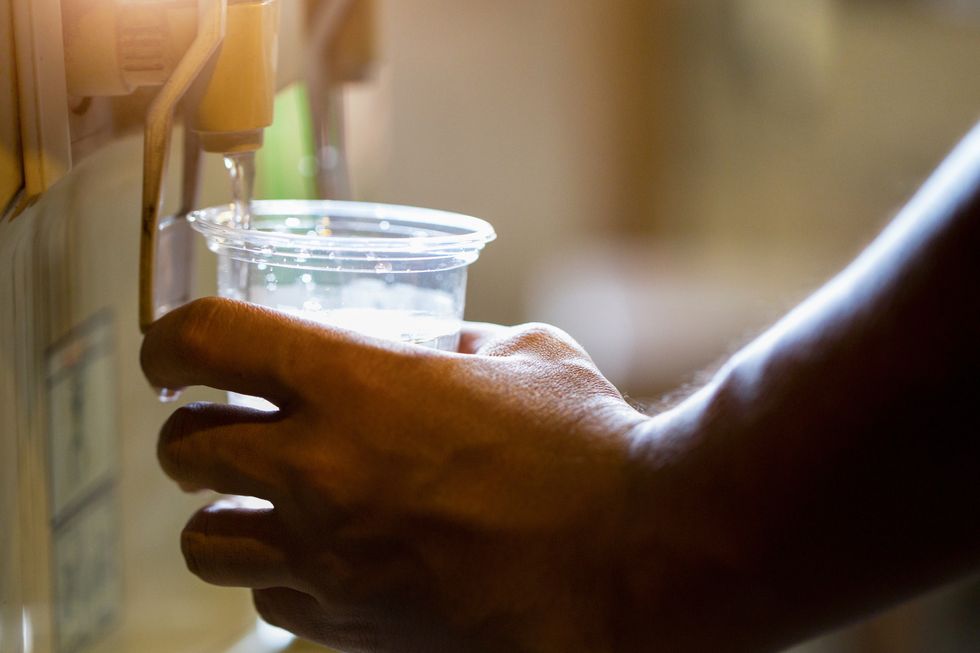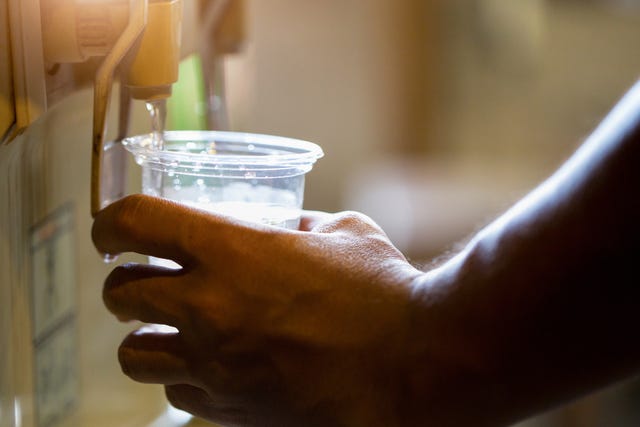

krisanapong detraphiphatGetty Images
Water is amazing stuff. About 71 percent of the earth’s surface is covered in it, and up to 60 percent of the human body is made of water. It’s essential for keeping us alive in plenty of ways—it helps you get rid of waste, helps you keep your body temperature regulated and your joints, spinal cord, and tissues in working order. And that doesn’t even count its role in preventing dehydration, a problem that can lead to unclear thinking, kidney stones, constipation, and overheating.
One thing it can’t do: Flush out the coronavirus, despite the popular myth that drinking water every 15 minutes could do such a thing. There’s a lot of information floating around on the internet, and there’s also plenty of content that consists of well-meaning advice, hopeful rumors, and blatant bad information that gets circulated among people digitally or in person.

.
That second type of content is where this myth falls. Facebook posts claimed the advice to drink water every 15 minutes to flush out the coronavirus and protect yourself from COVID-19 came from Japanese doctors, and that sipping would wash the virus down your throat and into the stomach where stomach acid would kill the virus. (But you’re not basing your health advice on Facebook posts, right?)
In reality, it doesn’t work that way. Drinking water frequently isn’t bad for you—check out how much you really need in a day here. (It’s not necessarily 8 glasses.) You just can’t expect water, no matter how frequently you sip it, to “flush out” the novel coronavirus.
As Krys Johnson, PhD, an assistant professor of epidemiology and biostatistics at Temple University, put it to the myth-busting site Factcheck.org, water consumption “has no bearing on the virus getting into your airways and lungs; if you breathe an infected person’s respiratory droplets, the virus will travel through your airways.”
So to put it another way, drinking water won’t keep the coronavirus from getting in your airways and lungs and taking up shop there and causing COVID-19.
What water can do against the coronavirus
The best use of water to prevent COVID-19: You knew “wash your hands” was going to come up somewhere, so here there it is. You know what to do. It’s not that the virus enters your body through your hands, it’s that your hands touch your face, and the virus gets into your mucus membranes that way. So you’ve got to wash it off before it can get inside and cause you trouble.
This content is imported from {embed-name}. You may be able to find the same content in another format, or you may be able to find more information, at their web site.
Another water-based myth that’s also floating around the internet is that taking a bath in very hot water can prevent a COVID-19 infection. The theory is that it would raise your body temperature and deactivate the virus. But the WHO says, “Your normal body temperature remains around 36.5°C to 37°C [97.7 to 98.6], regardless of the temperature of your bath or shower. Actually, taking a hot bath with extremely hot water can be harmful, as it can burn you.” But a normal, warm bath? That’s fine for you, your body, and your health. But again, it’s not a coronavirus fighter.
Of course, you should still drink water and bathe as you like in a day. Just don’t expect either of those uses of water to miraculously protect you from COVID-19. Get a refresher from the CDC on what does actually help protect you from the disease here.
Marty Munson
Marty Munson, currently the health director of Men’s Health, has been a health editor at properties including Marie Claire, Prevention, Shape and RealAge.
This content is created and maintained by a third party, and imported onto this page to help users provide their email addresses. You may be able to find more information about this and similar content at piano.io
